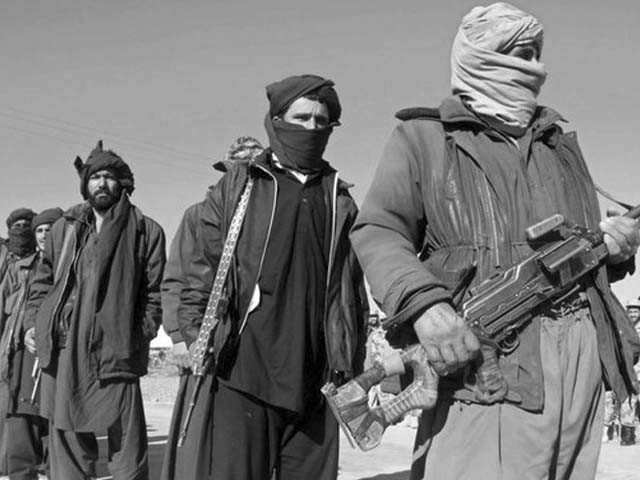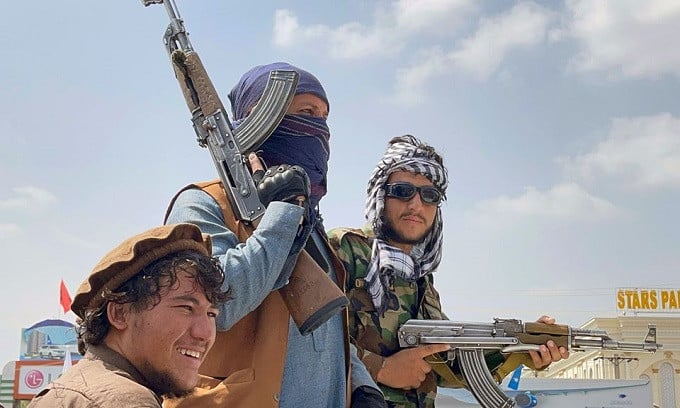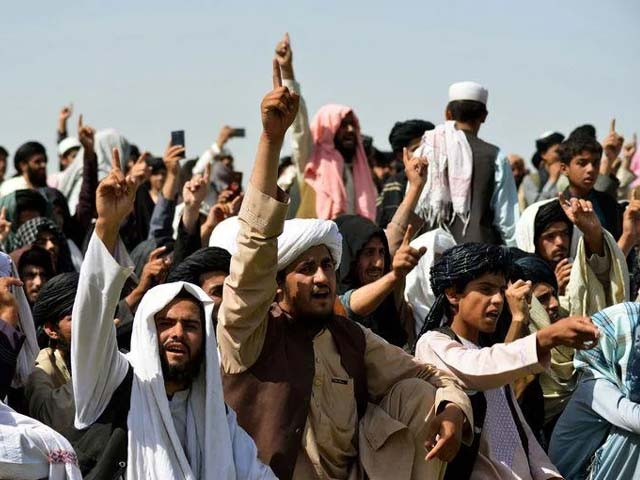
The Spin Boldak border stoppage proves the Taliban aren’t Pakistani proxies
The Taliban shut down the Chaman-Spin Boldak border crossing with Pakistan, one of Afghanistan’s top international trade routes, to protest Islamabad’s visa requirements for Afghan nationals. Talks are reportedly on-going over reopening the site but the very fact that this happened at all compellingly proves that the Taliban aren’t Pakistani proxies. If they were, then they wouldn’t have shut down this border crossing, stranded hundreds of trucks on both sides, and made public demands for Pakistan to change its policy.
For its part, it can be presumed that Pakistan is very sensitive about its border security issues right now since it doesn’t want an uncontrollable influx of migrants/refugees flooding into the country, is worried about terrorist infiltrators among them, and wants to avoid doing anything that could advance the international perception that it’s passively facilitating the Taliban’s on-going nationwide offensive. This unexpected dispute signals that the Taliban are truly becoming increasingly independent actors beyond any foreign player’s control.
This development was partially brought about by Pakistan recently losing its leverage over the group upon the US’ public announcement of the exact day that it plans to complete its military withdrawal from Afghanistan. There’s little that Pakistan can do to influence the group anymore, which emboldened them to shut down the border crossing. The Taliban appears intent on reversing prior dynamics by obtaining its own leverage over Pakistan. That would be a very concerning scenario if it negatively impacts on regional connectivity plans.
For instance, the Taliban might bargain hard to change the terms of February’s agreement to build a Pakistan-Afghanistan-Uzbekistan (PAKAFUZ) railway if it successfully returns to power. That’s not to say that it’ll sabotage this project’s prospects since it too stands to gain from its completion by pocketing transit fees and accelerating Afghanistan’s reconstruction if foreign investors turn it into a pivotal production and/or transhipment outpost, but just that it might complicate its implementation during the initial stages of construction.
It’ll remain to be seen whether the Taliban makes similar demands upon Afghanistan’s other neighbours whose border crossings it recently captured or if Pakistan remains the exception. The first scenario is less likely because those countries aren’t as predisposed as Pakistan is to negotiate this issue. They also don’t trade as significantly with Afghanistan as Pakistan does either so this wouldn’t affect them that much right away even though it’ll obstruct their future plans to trade with the rest of the world through that country via PAKAFUZ.
Regarding the second scenario of Pakistan remaining the regional exception, the Taliban might argue that Islamabad has an obligation to comply with its demands considering how many Afghan nationals (most of whom are ethnic Pashtuns just like many of the group’s members) still reside there as either economic migrants or refugees. If the issue isn’t resolved soon or in the event that it happens again sometime after the Taliban returns to power, then the group might calculate that this is a way to put international pressure on Pakistan.
Foreign, and especially Western, media might sense an opportunity to pressure Pakistan by mis-portraying it as being responsible for worsening Afghanistan’s humanitarian crisis even though it’s really the Taliban that’s to blame. Furthermore, some regional countries might also fall under the influence of this possible information warfare narrative and proceed to press Pakistan to revise its visa policy in order to advance the PAKAFUZ project that the Taliban might essentially hold hostage in that scenario.
The solution to this dilemma is for Pakistan to discretely inform all relevant stakeholders of what’s really happening and why, though without doing so publicly in order to avoid offending the Taliban and possibly making matters worse. They should be reminded that Pakistan has the sovereign right to formulate its border and visa policies however it wants in accordance with its national interests. The Taliban is behaving opportunistically and holding humanitarian aid hostage as part of a political game against Pakistan.
That objective observation further reinforces the credibility of Pakistan’s prior claims that it’s lost a lot of leverage over the Taliban in recent months and that the group definitely isn’t that country’s proxies. It should also serve to inspire Pakistani strategists to formulate their respective policies towards Afghanistan with this new development in mind. The increasingly independent nature of the Taliban can prove to be a wild card in regional affairs and thus make future planning even more difficult than it already is.




COMMENTS
Comments are moderated and generally will be posted if they are on-topic and not abusive.
For more information, please see our Comments FAQ